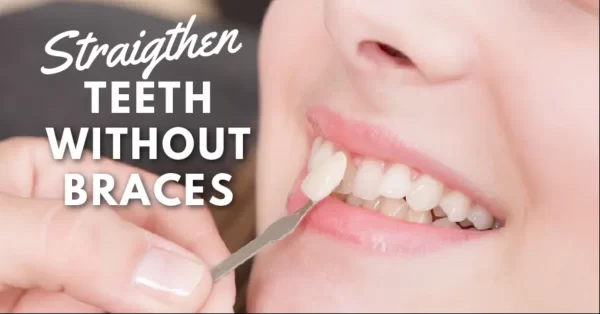

Free
Embark on a transformative journey with our exceptional range of medical treatments. As a leading medical tour operator, we offer a comprehensive selection of world-class treatments and procedures to address your unique healthcare needs. From advanced surgeries to cutting-edge therapies, our team of experienced professionals is dedicated to providing top-notch care and ensuring your comfort and satisfaction. Discover a new level of healthcare excellence with our tailored treatment options. Book now to start your journey towards a healthier and happier you.
Dental bonding is a cosmetic dental procedure that involves the application of a tooth-colored composite resin material to improve the appearance of teeth. Here is some information about dental bonding:
Familiarity with Treatment: Dental bonding is a common and relatively straightforward procedure performed by dentists. It is often used to address minor dental issues such as chipped, cracked, or discolored teeth, as well as to close small gaps between teeth. The procedure typically takes 30-60 minutes per tooth and can usually be completed in a single appointment.
Who is it Suitable for? Dental bonding is suitable for individuals with minor cosmetic dental concerns, such as small chips, cracks, or gaps in their teeth. It can also be used to improve the appearance of discolored teeth or to change the shape of teeth. Dental bonding is generally a more conservative and less expensive option compared to other cosmetic treatments like veneers or crowns.
Who is it Not Suitable for? Dental bonding may not be suitable for individuals with severe tooth damage or decay. In such cases, other treatment options like veneers or crowns may be more appropriate. Additionally, individuals with significant bite issues or extensive dental misalignment may require orthodontic treatment or more comprehensive dental procedures.
Advantages:
Complications: While dental bonding is generally a safe procedure, there are some potential complications to be aware of. These can include:
Preoperative Care: Preoperative care for dental bonding typically involves a consultation with a dentist to assess the suitability of the procedure for the individual’s specific dental concerns. The dentist will evaluate the teeth, discuss treatment goals, and address any questions or concerns. There is usually no special preparation required before dental bonding.
Postoperative Care: After dental bonding, it is important to maintain good oral hygiene practices to ensure the longevity and appearance of the bonded teeth. This includes brushing teeth at least twice a day, flossing daily, and scheduling regular dental cleanings every six months. It is also advisable to avoid biting hard foods or objects, biting nails, and consuming staining substances like coffee, tea, and tobacco for the first few days after the procedure to minimize the risk of staining.
Please note that the information provided is based on the search results and should not replace professional dental advice. It is important to consult with a dentist for personalized advice and guidance regarding dental bonding and any other dental treatments.
Only logged in customers who have purchased this product may leave a review.
Dental bonding is a cosmetic dental procedure that involves the application of a tooth-colored composite resin material to improve the appearance of teeth. Here is some information about dental bonding:
Familiarity with Treatment: Dental bonding is a common and relatively straightforward procedure performed by dentists. It is often used to address minor dental issues such as chipped, cracked, or discolored teeth, as well as to close small gaps between teeth. The procedure typically takes 30-60 minutes per tooth and can usually be completed in a single appointment.
Who is it Suitable for? Dental bonding is suitable for individuals with minor cosmetic dental concerns, such as small chips, cracks, or gaps in their teeth. It can also be used to improve the appearance of discolored teeth or to change the shape of teeth. Dental bonding is generally a more conservative and less expensive option compared to other cosmetic treatments like veneers or crowns.
Who is it Not Suitable for? Dental bonding may not be suitable for individuals with severe tooth damage or decay. In such cases, other treatment options like veneers or crowns may be more appropriate. Additionally, individuals with significant bite issues or extensive dental misalignment may require orthodontic treatment or more comprehensive dental procedures.
Advantages:
Complications: While dental bonding is generally a safe procedure, there are some potential complications to be aware of. These can include:
Preoperative Care: Preoperative care for dental bonding typically involves a consultation with a dentist to assess the suitability of the procedure for the individual’s specific dental concerns. The dentist will evaluate the teeth, discuss treatment goals, and address any questions or concerns. There is usually no special preparation required before dental bonding.
Postoperative Care: After dental bonding, it is important to maintain good oral hygiene practices to ensure the longevity and appearance of the bonded teeth. This includes brushing teeth at least twice a day, flossing daily, and scheduling regular dental cleanings every six months. It is also advisable to avoid biting hard foods or objects, biting nails, and consuming staining substances like coffee, tea, and tobacco for the first few days after the procedure to minimize the risk of staining.
Please note that the information provided is based on the search results and should not replace professional dental advice. It is important to consult with a dentist for personalized advice and guidance regarding dental bonding and any other dental treatments.
There are no reviews yet.
Only logged in customers who have purchased this product may leave a review.
Choosing the right hospital and physician are important factors to consider that significantly influence a patient’s treatment. The preferred choice for many patients is choosing private care.
Choosing the right hospital and physician are important factors to consider that significantly influence a patient’s treatment.
Reviews
There are no reviews yet.